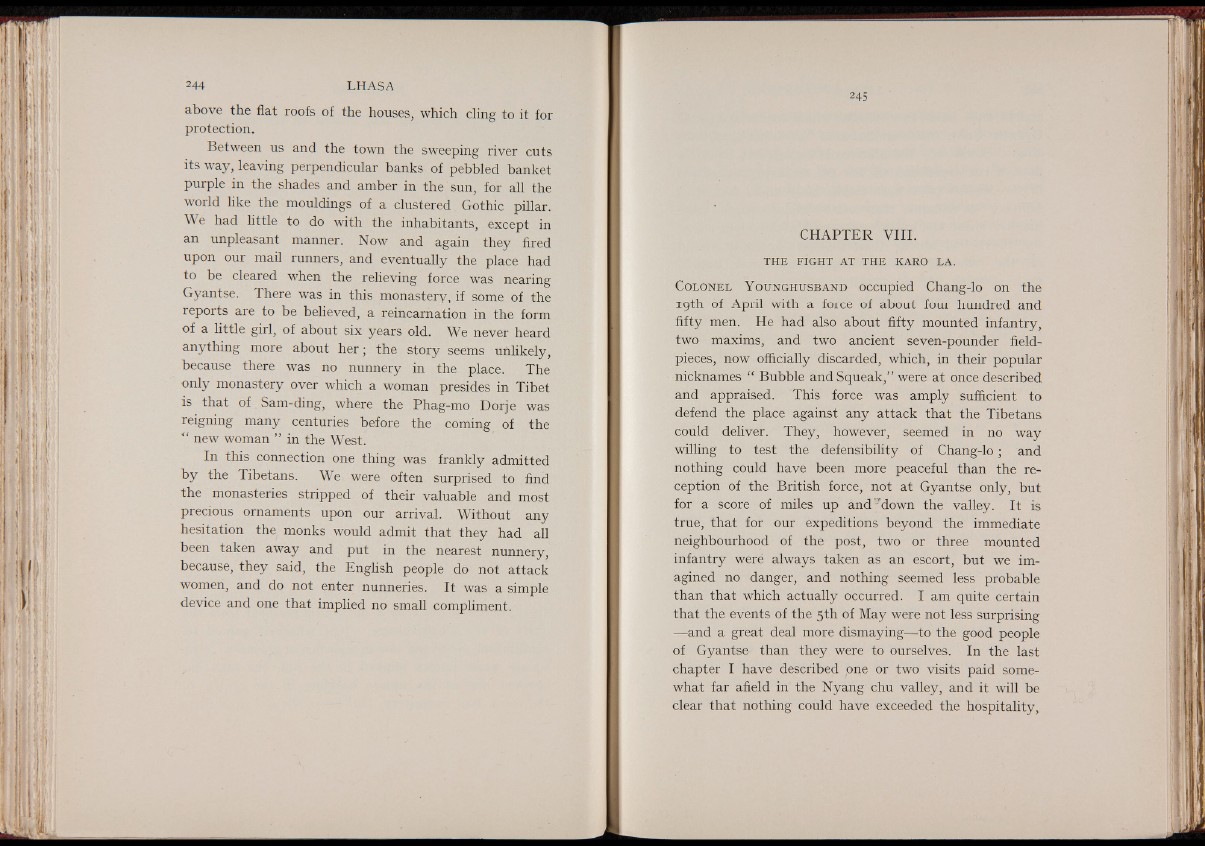
above the flat roofs of the houses, which cling to it for
protection.
Between us and the town the sweeping river cuts
its way, leaving perpendicular banks of pebbled banket
purple in the shades and amber in the sun, for all the
world like the mouldings of a clustered Gothic pillar.
We had little to do with the inhabitants, except in
an unpleasant manner. Now and again they fired
upon our mail runners, and eventually the place had
to be cleared when the relieving force was nearing
Gyantse. There was in this monastery, if some of the
reports are to be believed, a reincarnation in the form
of a little girl, of about six years old. We never heard
anything more about h e r ; the story seems unlikely,
because there was no nunnery in the place. The
only monastery over which a woman presides in Tibet
is that of Sam-ding, where the Phag-mo Dorje was
reigning many centuries before the coming of the
new woman ” in the West.
In this connection one thing was frankly admitted
b y the Tibetans. We were often surprised to find
the monasteries stripped of their valuable and most
precious ornaments upon our arrival. Without any
hesitation the monks would admit that they had all
been taken away and put in the nearest nunnery,
because, they said, the English people do not attack
women, and do not enter nunneries. It was a simple
device and one that implied no small compliment.
CHAPTER VIII.
THE FIGHT AT THE KARO LA.
C o l o n e l Y o u n g h u s b a n d occupied Chang-lo on the
19th of April with a force of about four hundred and
fifty men. He had also about fifty mounted infantry,
two maxims, and two ancient seven-pounder field-
pieces, now officially discarded, which, in their popular
nicknames “ Bubble and Squeak,” were at once described
and appraised. This force was amply sufficient to
defend the place against any attack that the Tibetans
could deliver. They, however, seemed in no way
willing to test the defensibility of Chang-lo; and
nothing could have been more peaceful than the reception
of the British force, not at Gyantse only, but
for a score of miles up and Trdown the valley. It is
true, that for our expeditions beyond the immediate
neighbourhood of the post, two or three mounted
infantry were always taken as an escort, but we imagined
no danger, and nothing seemed less probable
than that which actually occurred. I am quite certain
that the events of the 5 th of May were not less surprising
— and a great deal more dismaying— to the good people
of Gyantse- than they were to ourselves. In the last
chapter I have described one or two visits paid somewhat
far afield in the Nyang chu valley, and it will be
clear that nothing could have exceeded the hospitality,